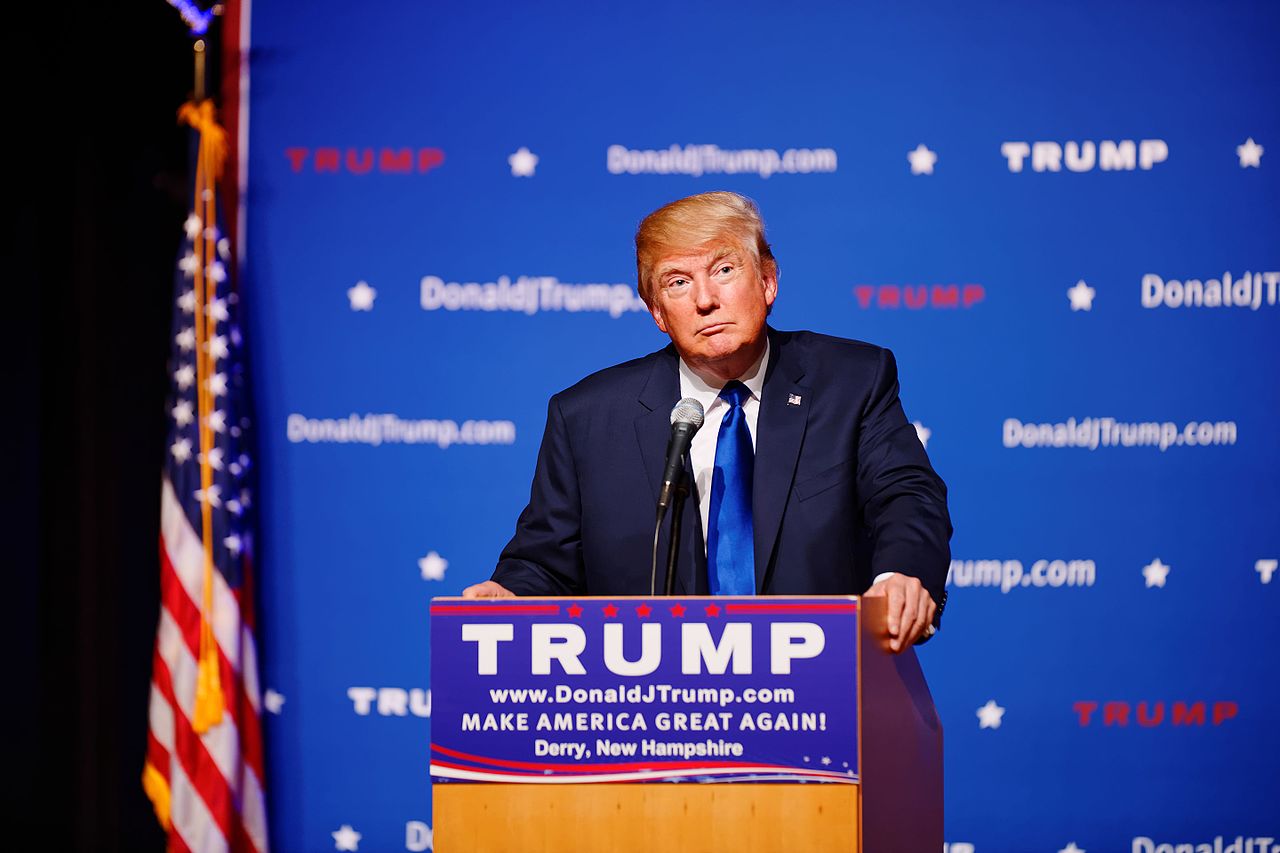Breaking the Democrat Monopoly Over the Black Vote
Posted on August 29, 2016

Donald Trump put the question directly to black voters.
What do you have to lose?
Things are so bad in African-American communities, the Trump theory goes, that why not vote for somebody like him, who promises to make America great again.
But the answer to that question is a lot more complicated than Mr. Trump might understand.
First, of all, black voters have gained quite a bit by voting as a block. They helped to propel the first African-American to the White House twice, by leveraging their votes, amassing huge turnout and by organizing.
They backed Hillary Clinton in the 2016 primary and for their efforts, they have a candidate who has refuted almost everything that made her husband a successful centrist, from his efforts to put more criminals in jail to his welfare reform law.
Black voters have much more at stake when it comes to expanding to size and scope of government. 20% of blacks who work, work for the government. That's far higher than the national average of around 15%. 29.5% of black employees work in educational services, health care and social assistance professions.
Only 3.6 percent of black Americans are self-employed, well below the national average of 6.2 percent. And while the black civilian labor participation rate is at a historic low of 61.9%, it is not that much different from the white participation rate of 63.1%, which is also at a historic low.
Blacks tend not to work in the construction or building trades. 2.9 percent of black Americans work in construction, while the national average is 6.2%. When Trump talks about his experiences in building things, it is not that compelling to black voters. When Mitt Romney preached the gospel of individual achievement through cutting government, it landed like a dud to African Americans. He got few of their votes.
The numbers are even worse for Donald Trump if the latest polls are to be believed. According to one survey in Ohio, not one black voter said he or she would vote for Trump.
Of course, for the GOP, this is nothing new. The party of Lincoln has steadily lost the black vote for decades. About 25% voted for Nixon against Jack Kennedy in 1960, but Barry Goldwater took care of those voters in 1964 by coming out against Civil Rights legislation. Nixon did better again in 1972, but after that, the most anybody got was George W in 2004, when he broke 10 percent.
Both McCain and Romney performed horribly against Mr. Obama, which probably wasn’t that surprising given the historic nature of his candidacy.
When Trump talks crime, he has to understand that not every black community is wracked by this kind of violence. It is mostly isolated in the worst ghettos.
For middle-class African Americans, those who are the most likely to go vote, they are more motivated to go to the polls based on issues like racial profiling and Republican antagonism towards government spending than they are by crime on the streets, which by and large is something they watch on the news, like everybody else.
And while crime is up in the worst neighborhoods, especially in Chicago, it is down to historic lows just about everywhere else.
So how do Republicans break the Democratic monopoly over the black vote?
Looking at the past history (I am thinking of the Irish experience), it seems to me that several things have to happen.
First, we need a concerted strategy to integrate the black middle class with other ethnic groups.
When the Irish moved from the cities to the suburbs, they lost their cultural identities, assimilated, and as they became more prosperous, they vote Republican. People vote like their neighbors.
Second, we need to stop doing stupid stuff that alienates black voters. We need to renew the Voting Rights Act, for example. We need to denounce, loudly and with passion, white nationalist movements. We need to stop with the voter fraud meme.
Third, we need to stop with the racial gerrymandering that carves out black districts, white districts and Hispanic districts. I know why we allowed this to happen, but it undermines the process of assimilation that theoretically should lift all boats.
Fourth, we need to stop assuming that all black people are the same because they vote as a block. Their experiences are as varied as the rest of America. And while it is true that black America faces some unique challenges, given the legacy of slavery and racism in this country, that doesn’t mean that the situation is hopeless or not fixable.
Fifth, we need to listen to those, like Tim Scott, who have made the leap to the GOP. Scott’s courage is frankly, amazing. When he talks plainly about his own experiences facing discrimination from law enforcement in the Capitol building as a Senator, this should be a real wake-up call to all of us. If we truly want to a color-blind society, we all have to examine our own assumptions and work to improve our own selves.
And finally, we have to have to a better understanding about how our policy proposals either conflict or jibe with the experiences of black voters. We have to appeal to these voters by how they actually live their lives, how they work and how the political system either rewards them or fails them. School choice seems like a no-brainer, unless of course, you are a teacher who could lose your cushy job. Government graft in one person’s eyes is patronage in another’s.
In sum, to answer Mr. Trump’s question, black voters believe they have a lot to lose in this election. As Republicans, we have to convince them that they could have more to gain by voting for us. But it’s not going to be an easy sell to make. Not this year, at least.
